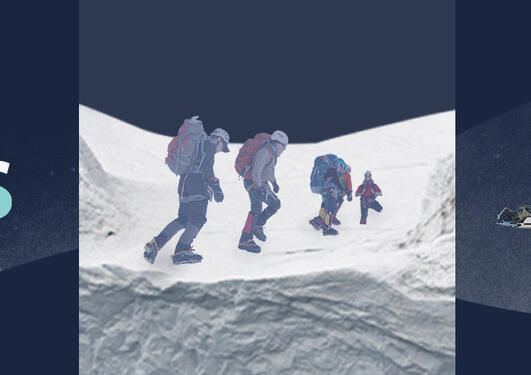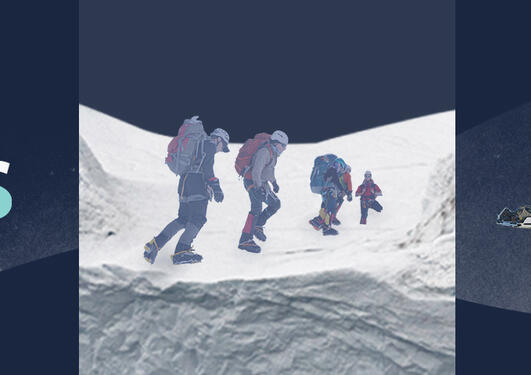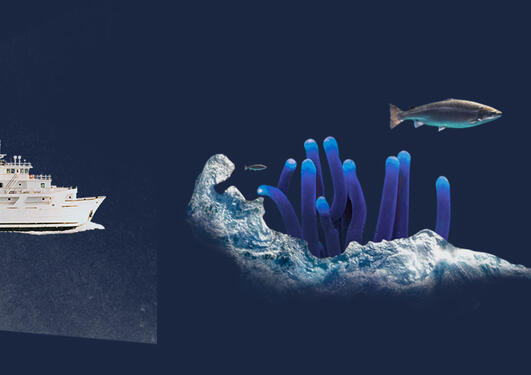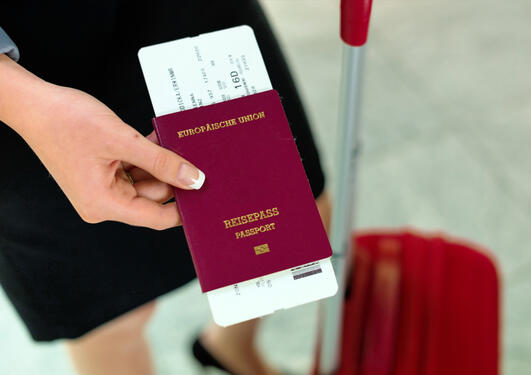Research possibilities for the MSCA SEAS postdoctoral research fellow on sustainability within marine geology/geophysics
The information on this page is a supplement to the complete advertisement of the position in the recruitment-portal Jobbnorge. The full advertisement of this position in Jobbnorge will be available from April 1, and linked from this web page. Call deadline is June 12, 2023.
Hovedinnhold
Key information
| One position | MSCA SEAS postdoctoral research fellow at Department of Earth Sciences |
| Jobbnorge title | MSCA SEAS postdoctoral research fellow on sustainability within marine geology/geophysics |
| Topical frame | Marine geology/geophysics |
| Supervisor-team | Professor Christian Haug Eide, researcher Jo Brendryen and Professor Haflidi Haflidason |
| Mobility | For an incoming or outgoing candidate, see mobility rules |
| Unit of employment | Department of Earth Sciences at University of Bergen |
| Group affiliation(s) | Research group on Quaternary geology and Paleo Climate/Bergen Offshore Wind Center (BOW)/Bjerknes Centre for Climate Research |
Thematic area and contact
This position is connected to marine geology/geophysics, with a main focus on sustainability, renewable energy, or geohazards relevant to the coast of Norway.
The position is open to either an incoming or an outgoing candidate, see mobility rules.
The successful candidate will be employed at the Department of Earth Science and included in the research group on Quaternary geology and Paleo Climate. The candidate will also be a part of the Bergen Offshore Wind Center (BOW) and The Bjerknes Centre for Climate Research (BCCR).
Information about the supervisors, research groups and research possibilities for the fellow is available below.
For further details about the research possibilities please contact Professor Christian Haug Eide, researcher Jo Brendryen or Professor Haflidi Haflidason.
Research possibilities and resources
Supervisors
Christian Haug Eide is a professor in sedimentology at the Department of Earth Science, University of Bergen, since 2018. He finished his PhD on controls on shallow marine processes in 2014 and has since been conducting broad research in the field of clastic sedimentology. Haug Eide has been working on magma transport through sedimentary basins, the evolution of the Barents Sea, sediment transport in the Arctic, landslides in W Norway, and more recently on geological conditions for offshore wind. He is the leader of several research projects funded by the Norwegian Research Council (ISBAR, FueBAR), industry and the Norwegian Petroleum Directorate, and is work-package leader in the ERC-funded ITN-project S2S-Future. He is the supervisor of 5 PhDs, 1 postdoc and 5 MScs, and he and his students have won multiple awards for their work (J. Geol. Society’s Early Career Award 2017, 2 MSc’s have been awarded the Schlumberger/Geological society’s Earth Model Award).
Jo Brendryen is an experienced marine geologist who’s work are centered on how marine and terrestrial geological and biological processes interact with each other, and with climate and ice sheets. His work encompasses a wide range of topics including past climate variability and ice sheets, and processes related to sedimentary deposits, sedimentology and geochemistry, as well as with geohazards related to sediment stability and sea-bed infrastructure. His research spans a wide range of environments, from inland lakes, via fjord environments, the continental shelf and slope, to the deep-sea along the mid ocean spreading ridge. He is particularly interested in ocean margins as the interphase between the deep-sea and the terrestrial realms. Ocean margins are key locations for the transfer of sediments and nutrients from land to sea. The interaction between the ocean and marine-based ice sheets on the continental shelf is a key factor for our understanding of how the current ice sheets will evolve in a changing climate, and with them global sea-level. He is supervising 1 PhD candidate and 7 MSc’s.
Haflidi Haflidason is professor in Marine Geology at the Dept. of Earth Science, University of Bergen, since 2003. He has been working on a wide range of marine geological sedimentary processes, stratigraphy and paleoceanography since 1980. Since 1990s, the research activities have also focused on slope stability and studies on submarine slides along the N-Western Europe margin within a number of EU projects and in 2000s, also included a cooperation with a number of oil and gas industry partners in the Storegga Slide region. In 2010s, the research focus on slope stability and submarine slide shifted to the West- and Mid Norwegian fjord systems in a close cooperation with the Governmental Road authorities related aiming increase our understanding of subsea slide frequency in Norwegian fjords. The most recent research focus is on an Academia project: “Marine geological site surveys for offshore wind installations”. Haflidason has been principal investigator (PI) on 60 national and international marine geological and geophysical research cruises, supervised or co-supervised 60 MSc and 20 PhD students, and has 145 publications (21 500 citations).
Research groups/Centers
The supervisors have an established cooperation with the research groups and centers at the University of Bergen listed below.
- The candidate will be affiliated to the Quaternary geology and Paleoclimate research group at the Department of Earth Science (https://www.uib.no/en/rg/quaternary).
- The candidate will be a member of the Bergen Offshore Wind Center (BOW) (https://www.uib.no/en/bow). The BOW is a resource center contributing research and education at a high international level. The center address aspects related to resources, environment and technical solutions, as well as legal, economic and social aspects of offshore wind energy. The BOW center provides professional support and advice to industry, authorities and the society at large, as well as mobilizing and making UiB’s multi-discipline competence more visible.
- The candidate will also be a member of the Bjerknes Centre for Climate Research – Understanding climate for the benefit for society (https://www.uib.no/en/bjerknes).
A collaboration with the Centre for Climate and Energy Transformation (CET) (https://www.uib.no/en/cet) is also under consideration.
The choice of co-supervisor from another department (or national research/company partners) than the postdocs host department will be selected dependent on the submitted project profile.
National co-operation partners
A national co-operation is established on the thematic area of offshore wind centered on the project 4SWIND: Advancing seismic seabed survey techniques and optimizing site-selection for offshore wind farms. This project is jointly funded by the Research Council of Norway, Equinor and Geoprovider. A dialog is planned with the electric network companies as Statnett and North Connect related to selection of safe cable routes in both fiords and outer coastal areas.
International co-operation partners
Depending on the focus of the submitted postdoctoral project, the international research and/or university partners hosting the candidate could be at the University of Kiel/GEOMAR, University of Bremen (MARUM), University of Southampton, or University of Durham.
See the full advertisement in Jobbnorge
The full advertisement in Jobbnorge will be available from April 1, 2023, until call deadline June 12.
Important general information
Please be aware
- That until April 1st 2023 (official call opening) there might be minor adjustments in the Guide for applicants and the templates needed for applying.
- That the application process is time-demanding and requires a close dialogue with name-given available faculty supervisor or contact who, close to the deadline, must sign a supervisor match declaration if an application is to be eligible.
- That some fields of research, especially within sensitive technology areas, might be enforced by Norwegian and international regulations regarding Control of the Export of Strategic Goods, Services and Technology. Candidates who by assessment of the application and attachment are seen to conflict with the criteria in these regulations might be prohibited from recruitment to UiB.



